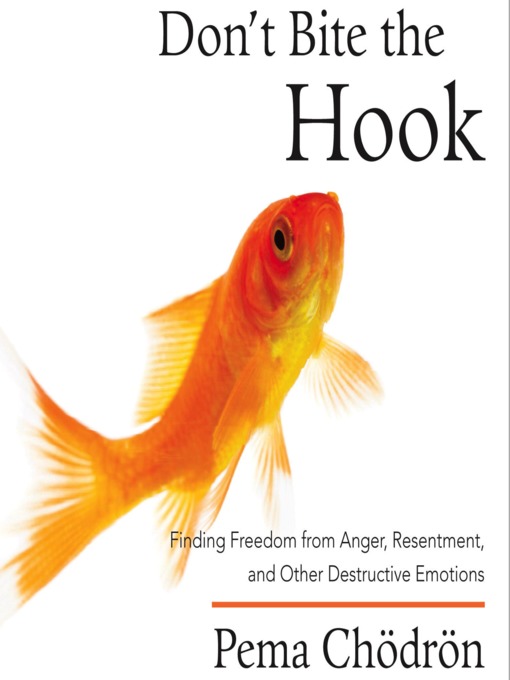Life has a way of provoking us with traffic jams and computer malfunctions, with emotionally distant partners and crying children—and before we know it, we're upset. We feel terrible, and then we end up saying and doing things that only make matters worse. But it doesn't have to be that way, says Pema Chödrön. It is possible to relate constructively to the inevitable shocks, losses, and frustrations of life so that we can find true happiness. The key, Pema explains, is not biting the "hook" of our habitual responses
- Lived experience of Dementia
- Lewy body dementias
- Frontotemporal Dementia
- Younger Onset Dementia
- LGBTI and dementia
- Eating and drinking well
- Activities and Engagement
- Culture, Religion and Spirituality
- End of Life and Palliative Care
- Younger Readers
- See all living with dementia collections
- Caregiving : Support and Guidance
- About Dementia
- Early Stage Dementia
- Communication
- Changes in behaviour
- Grief and Loss
- Relationships, Intimacy & Sexuality
- Residential Care
- See all caregiving collections
- Dementia Care Practice
- Person-Centred Care
- About Dementia
- Dementia Care Therapies
- Pain and Dementia
- Exercise
- Leadership and organisational change
- Elderhood
- Changes in behaviour
- See all healthcare professionals collections
- Dementia Australia resources
- Audiobooks
- Australian content
- Memoir
- Fiction
- Brain health
- Worried About Your Memory?
- Reminiscence and life story work
- Exercise
- Mindfulness & meditation
- Self-care & Wellbeing
- See all featured collections collections
